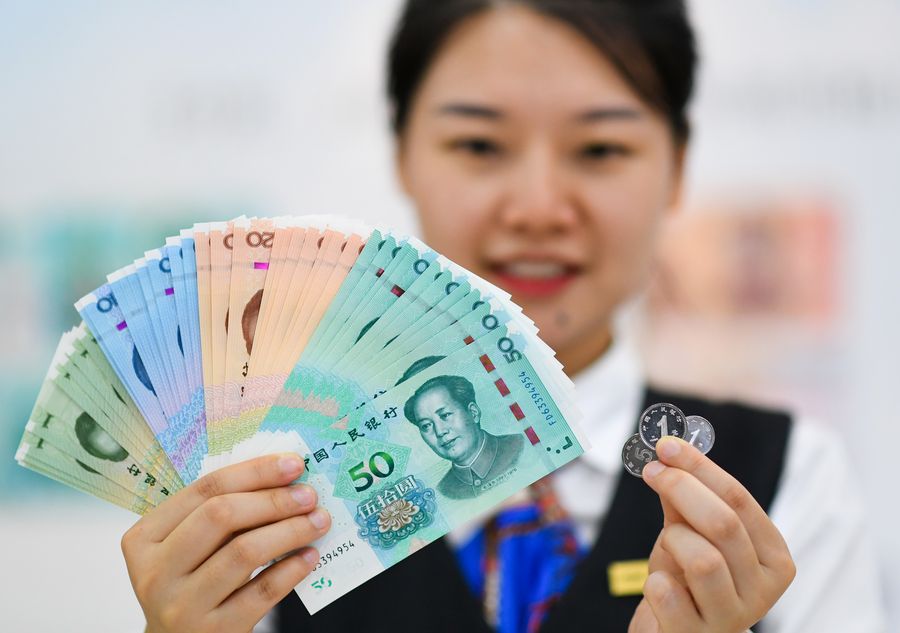
A staff member displays the banknotes and coins included in the 2019 edition of the fifth series of the renminbi at an Industial and Commercial Bank of China (ICBC) branch in Beijing, capital of China, Aug. 30, 2019. (Xinhua/Chen Yehua)
"China has made enforceable commitments to refrain from competitive devaluation, while promoting transparency and accountability," U.S. Treasury Secretary Steven Mnuchin said in a statement.
WASHINGTON, Jan. 13 (Xinhua) -- The United States has dropped its designation of China as a currency manipulator, according to a report from the U.S. Treasury Department released Monday.
In its semiannual Report on Macroeconomic and Foreign Exchange Policies of Major Trading Partners of the United States, the Treasury Department said no major U.S. trading partner at this time met the relevant legislative criteria for currency manipulation.
Noting that the department assessed developments over the last several months with China and its currency practices, U.S. Treasury Secretary Steven Mnuchin said in a statement that "China has made enforceable commitments to refrain from competitive devaluation, while promoting transparency and accountability."
Mark Sobel, U.S. chairman of the Official Monetary and Financial Institutions Forum, an independent think tank, said on Twitter that this is "good news," calling the designation "blatant" and "errant" political act.
"China shouldn't have been designated to start with," said Sobel, who was the U.S. representative at the International Monetary Fund (IMF), and served as deputy assistant secretary at the U.S. Treasury Department. He noted China's current account surplus is small as a share of GDP, and there is "scant intervention."
Amid heightened trade tensions, the U.S. Treasury Department decided to label China a currency manipulator in August, drawing strong criticism from domestic and abroad, with many calling the designation groundless and irresponsible.
Even Lawrence Summers, former U.S. treasury secretary and economic advisor to former President Barack Obama, lashed out at the decision, saying that such a move has damaged U.S. credibility.
After concluding the annual Article IV consultation to review the Chinese economy, the IMF released a report which didn't back the accusation, affirming its view that China's exchange rate is broadly in line with economic fundamentals.
The People's Bank of China, meanwhile, said China deeply regrets the U.S. Treasury Department's designation, noting that such a label on China does not meet the quantitative criteria for so-called currency manipulators set by the department itself.
In a recent statement, the central bank said China will continue to let the market play a decisive role in exchange rate formation and keep the renminbi's exchange rate generally stable at a reasonable and balanced level.
The U.S. Treasury Department under the Trump administration previously released five semiannual reports on major trading partners' exchange rate policies -- including one in May 2019 -- none of which labeled China as a currency manipulator.
In the newly released report, the Treasury Department added Switzerland on its "monitoring list," which means its foreign exchange policies merit close attention. In the May 2019 report, the department put China, Germany, Ireland, Italy, Japan, South Korea, Malaysia, Singapore and Vietnam on the monitoring list. ■



